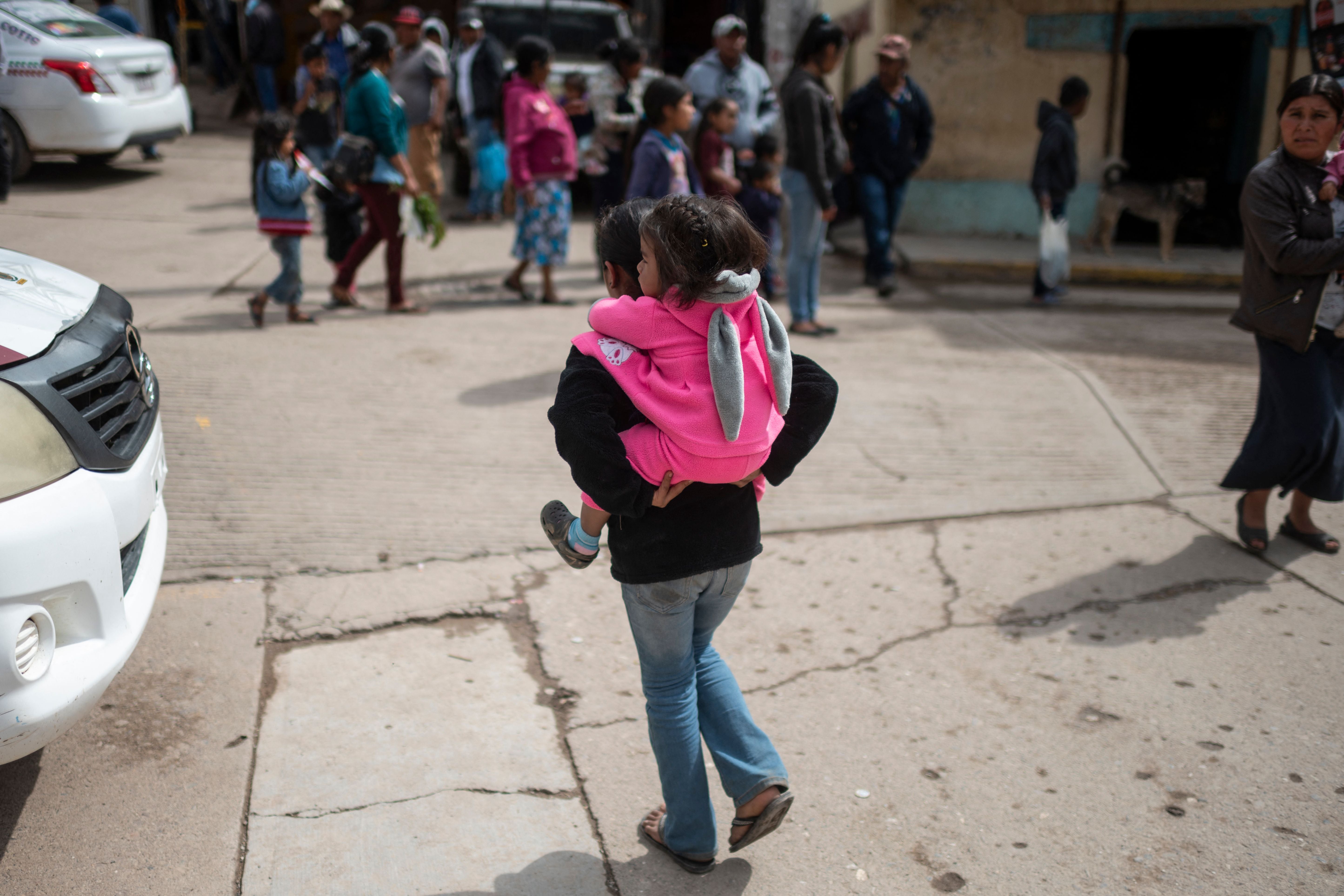14-year-old Mexican jailed for fleeing arranged marriage
The teen’s family received 200,000 pesos (£7,120) from a neighbour for giving their daughter’s hand in marriage

A Mexican teen was jailed last week after she ran away from her wedding into an arranged marriage that had been purchased by her neighbour.
Identified as Anayeli “N” in the local press, the 14-year-old from Joyal Real village in Mexico’s Guerrero state was to marry her neighbour last Monday.
Anayeli’s mother had received 200,000 pesos (£7,120) for giving her daughter’s hand in marriage.
Child marriages, though illegal, are common in rural areas of Mexico.
Guerrero is one of Mexico’s leading states in child marriages, as it is a largely rural area that is home to indigenous populations.
Abel Barrera, director of the Guerrero-based Tlachinollan Human Rights Center said to The Daily Beast that once bought, girls are expected to cook, clean, take care of the house, and — if they work in the field — the money is paid to their families.
Anayeli, a member of the Mixtec community, thought it was her older sister who was to get married.
Mr Barrera said that when she found out that it was her and not her older sister who had been sold, “she preferred to flee without notifying anyone, regardless of the fact that her mother had already agreed [on the price] and the expenses paid by the groom’s father.”
Anayeli escaped her family home on the day of the wedding and took shelter in the home of her 15-year-old neighbour Alfredo “N”.
When the groom’s family found out about her escape, the Community Police were asked to track her down. Anayeli and her friend Alfredo were found and then sent to jail, where they spent the night.
Community Police are an auxiliary form of law enforcement in smaller areas of Mexico where is there little or no state reserve police presence.
Anayeli was asked by police officials to give in to the marriage or return the money spent by the groom’s family on the wedding.
The next morning, the teens were freed when members from the Tlachinollan Center, state police, and representatives of the regional district attorney’s office arrived.
The two were then placed in protective custody as part of Mexico’s Comprehensive Family Development system for their own safety, reported El Universal.
Marina Reyna Aguilar, the executive director of the Guerrero Association Against Violence Toward Women accused the Community Police of abusing their power by “normalising the customs that contravene the human rights of girls and women,” despite the illegality of underage marriage.
Neil Arias Vitinio, one of the lawyers who helped secure Anayeli’s release said that her case was “very complicated” as she only spoke her indigenous Mixtec language and was largely uneducated.
“When talking to her we realised that she is very self-conscious. She would hardly speak a word to us, most of the time she was silent,” he said.
While child trafficking remains rampant in several rural indigenous populations particularly in the states of Guerrero, and its neighbours Michoacán and Oaxaca, child rights groups have accused the Mexican government of downplaying the issue.
Last October, president Andrés Manuel López Obrador came under criticism after he dismissed the issue while visiting the area.
“I’m not here to look at that because it’s not the rule,” Obrador said. “There are a lot of moral, cultural and spiritual values in the [indigenous] communities. [Buying child brides] might be the exception, but it’s not the rule,” he said.
Join our commenting forum
Join thought-provoking conversations, follow other Independent readers and see their replies
Comments
Bookmark popover
Removed from bookmarks